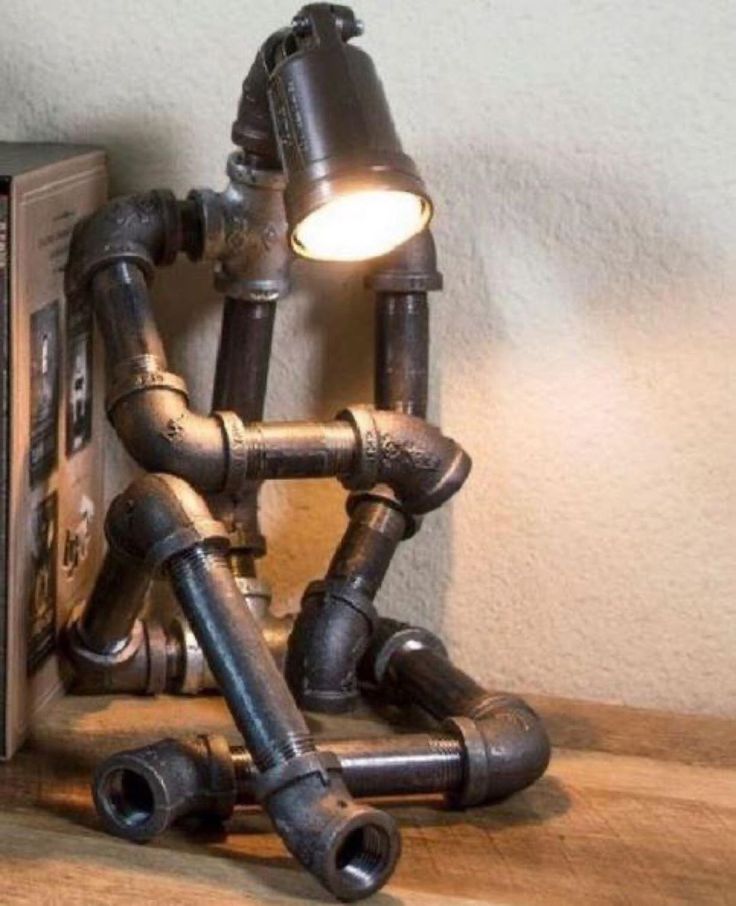As a Dutchie, I can only agree. I do have to say the road infrastructure in a lot of countries will have to change too to make this feasible… I have been to Edinburgh, Scotland last week and it feels completely suicidal to ride a bike there, barely any bike lanes and a very big dislike towards cyclists.
If anyone wants to know more about how we do roads in the Netherlands, I totally recommend Not Just Bikes
During 40 years, everything has been done for cars. But it’s ridiculous to use a 5 persons transport (car) for only one person. The ecological problem is not only thermal vs electric, it’s also cars versus 2 wheels transport
From my experience, the electricity consumption of e-bikes is low. We have a Babboe cargo bike and we drive 5km every day. I measure the electricity consumption of the charger, and it comes down to 0.5-1kWh per month. I assume regular e-bikes have an even lower consumption.
A UK study showed that carbon emissions for ebike usage was less than human powered cycling, because UK people eat so much meat.
Yeah right, keep putting this problem on “everyone” because those bigger poluting companies can do nothing to change their course of action.
The great news is that infrastructure to make cities more walkable and bikeable is actually really cheap. Like, compared to car infrastructure that can move a similar amount of people it’s nothing. It’s mostly an issue of political will to actually build the stuff.
Cool. Now how do we make winter more amenable to cycling?
wear more clothes
It’s even cheaper than sustaining the car infrastructure that we actually can’t afford to maintain…
When are these idiots (journalists/editors) going to learn that messaging matters? 690 million tonnes? Yeah, sounds like a lot. No context for that number in the headline which is all most people read.
Perhaps instead of listingn only statistics and pretending that laypeople care, help people see what that would mean for them personally. Get them invested in the idea. Help plant the seeds and allow them to come to the conclusion that things should change. It’s like someone saying the government spent a billion dollars on something. Sure, that’s a lot of money, but the vast majority of people have no real concept of what a billion of something even is.
It’s a damn shame that the us isn’t more bike friendly. I would kill to have a public transit system that didn’t suck, but unfortunately,l unless there is a massive change, I don’t see car usage going anywhere.
Don’t worry, when gas becomes $100/gal in the next decade or two the US will become really bicycle friendly.
Cycling is cool but that’s small-fry compared to if we all went vegan (or even just vegetarian)…
Vegan (or even just vegetarian) is cool, but that’s small-fry compared to if we just stopped having freaking kids.
Well… I mean I’m not having kids either, but someone has to to continue the species, nobody needs to eat meat.
someone has to to continue the species
Why?
“Willful extinction” is not a productive way to end climate change.
You won’t convince people, so it’s DOA, but it’s also philosophically weak in the face of alternative views. Alternatives which also theoretically have humans in them and don’t obliterate the environment exist, meaning you are on the back foot here to justify an anthropocentric philosophy.
“Why do you think people should exist?” Can be an interesting discussion, but as an argument it’s not a great one.
You won’t convince people
I don’t have to. Birth rates in the developed world are plummeting.
And unless I’m mistaken, you are the one trying to convince people right now.
Birth rates are plummeting to maintain what will probably be around 13 billion. That’s wildly distinct from willful extinction.
I… What? You made a post saying people should do x, I responded. Yeah we’re both trying to convince people of a thing, I’m not sure I see how that is actually relevant.
“[S]omeone has to to continue the species” —you, not me
Birthrates are not plummeting to zero, if thats what youre implying. As people get more educated, they tend to have fewer kids. No one is considering having “fewer” kids because of the childs lifetime GHG emissions
There’s nothing inherently bad about eating meat. We’ve been doing it for 100s of thousands of years. It’s that there are too many freaking people. I judge people way more when I see them with offspring, then I do their dietary consumption.
And that is microscopic compared to levying massive fines on businesses that don’t go carbon neutral and passing global laws to protect the amazon and MESS UP any government that toys with it.
While I’m a card carrying bike nut and plant-based eater, I feel we can make more of a difference encouraging people to do things that are less all in.
Work commute too far right now? Maybe start replacing the small car trips with bike trips.
Veganism unthinkable? Maybe try a meatless day or two a week.
Something people can wrap their heads around, and after trying, realise they haven’t died.
And that is nothing compared to corporate emissions and air travel, but the internet LOVES telling you that how you live your life is wrong for moral reasons or due to some panic.
I say this as a chef that’s generally vegan friendly. We gotta stop blaming each other when we’re a drop in the bucket compared to big business. They got you attacking other people so they can do what they want with impunity.
Totally agree with your sentiment, we wasted so much time putting the pressure on the individual when the real culprit was Industry, there is no argument whatsoever there. That being said, the Agriculture Industry (food production in general) does account for a hearty chunk, about 25%, of all worldwide emissions, and that is without doing calculation for “land lost” costs, i.e. the reduction in forests we took by having agricultural industry there instead, and the emissions those forests could have negated.
Food is a serious driver of climate change. Meat, but especially beef, is the worse food in terms of the cost we pay in overall emissions. Moreover, half of ALL agricultural land in use is for pasturing animals. Beef being eliminated as a food product would incredibly help climate change and meet emission goals much faster. This video does a great job at summarizing the problem, is a generally reliable channel for informative mini docs, and provides a huge list of sources you can review there.
deleted by creator
Left LA in 2018. went from a 10min bikeride (1.25hr workout) to a 3-5hr commute because “promotion”… now I don’t even have a license, i run my 70 seat restaurant via cargo bike just fine (only meats, beer/wine delivery).
went from a 2-3hr drive to the beach (++ parking fees) to 5 min bike, 10 min walk to one of several beaches.
multiple mountain hiking trails within 20 min, bus/train with regular service etc.
We could not be happier in our little slice of socialist hell…
I live in a tropical country… I would love to cycle to work but (i) roads are a living hell and (ii) it’s hot and humid af and i look like I fell into the ocean after a 20-minute ride.
(i) is fixable with good infrastructure, (ii) isn’t :(
Are you in SM by any chance?
Where at? And how much did it cost ya? I’ve been wanting to move to a more bike friendly area but even with $150k down my mortgage would double and I’d lose two paying roommates.
Whilst I agree with the sentiment, it’s not possible for everyone to use a bike 100% of the time. Infrastructure does help, and I admit my UK city if certainly not very bike friendly, but even if it was it would be nearly impossible as everything is just too far away and/or you can’t transport what you need to on just a bike. We still need cars of some propulsion method or another.
I’m from the Netherlands and I don’t use a bike 100% of the time either of course. I’ll ride it for any commute under 10 km that doesn’t require me to transport any large or heavy items, though. I’m fortunate enough to have a work place within cycling distance, so I’d estimate I use my bike about 70% of the time I need to go somewhere. Needless to say, this lowers my carbon output quite significantly compared to using a car.
Proper infrastructure and proper public transport which allows bringing bikes solve most problems.
With a cargo bike you can transport most things just fine, for stuff that can’t be transported by bike a shared care or delivery company can be used.
I wish we had more bike-friendly infrastructures on France, right now everything is still adapted to a car-centered lifestyle…
Here’s the thing. Everyone will bike like the Dutch and the Dutch will bike even more. It’s not a question of “if.” We are already past peak oil. There will only be more wars and more climate change. Those who survive will be relying on bikes because petroleum won’t be an option anymore and electric cars are not a real solution. Cities will become more dense, suburbs will decay, in all likelihood huge parts of the US will completely collapse because life will be impossible without cars. We know petroleum is finite and there is no other technology that will replace this.
We can prepare by rolling out infrastructure now, or we can just keep going and crash as hard as possible in to a wall. No matter what we do, we’re going to stop using gas. I hope we do it on our terms rather than waiting for tons of people to die before we fix it, but I honestly don’t have a lot of hope. But hey, some people are starting to wake up so maybe we can keep that going.
I agree we’re probably past peak oil, but i think i disagree a bit on cities becoming more dense - i think video conferencing and remote work put much less impotus on people to congregate like we once did, and yes that likely will mean more strain on the roads, but i also think the electric cars will be more like a spreading out of electric storage and transmission than 100% used for transportation. (Again due to increasing popularity of remote work) having a store of electricity will be posh and help guard with the rolling brownouts due to climate change and terrorism interrupting the grid.
It’s an interesting scenario, but why count out electric cars?
Yes but not everyone lives in a flatland like the dutch do, I believe I could fully transition to a bicycle if cars weren’t the top priority on my city, but I know many friends that live in parts of the city that are basically mountains.
There are plenty of people who bike in Seattle. Ebikes make it achievable for most people. Also, there are tons of cities that are flat. Why isn’t Austin or LA as bike friendly as Amsterdam or the Hague? Hills aren’t the problem.
Ebikes have really helped flatten things out in my area. I see plenty of couples in their 70s and 80s tooling around.
However they’re not cheap, and I think there should be tax incentives for buying them.
In Canada I’ve seen some places advertising a 500$ rebate for ebikes.
In BC it’s up to $1400 scaling with income!
I completely agree with the incentive, and in some countries there are.
For instance in France, there are government helps for buying ebikes.
That’s why bikes have gears. You should be able to go up any reasonable hill with a bike that has more than one gear.
E-bikes are another option, but not a necessity.
Id say the car-centric city design is a huge factor as well. At least in the US, most large cities had electric trains, and we tore it down for parking lots. Fixing that problem would be incredibly daunting.
Id say a good step would be to have high speed rails that go between major cities, coupled with bringing some of those electric trolleys back. As a Michigander, I think a good line would be Detroit -> stops along I96 -> Grand Rapids -> Benton Harbor -> More stops along 131/I94 -> Chicago.
It would also help if expensive private jets and yachts had to pay to offset their CO2 emissions. Oil industries and others need to pay for their pollution too and certainly can’t claim government money as they pollute.
It’s kinda insane how many cruises there are that don’t even really make any stops. Just giant inefficient hotels. I feel like there has got to be a set of incentives to get rid of the majority of these a hotel with a no phone policy would replace 90% of the appeal.
Cruises have two major benefits (for the owner) over resorts:
- Their workers are half a step up from indentured servants.
- Land is expensive.
There are cleaner fuels available, but they cost more, so it’s only used when not in international waters as mandated by the government of wherever they’re going. Until we, as a worldwide collective, agree to stop selling and using bunker fuel, there’s not a lot that can be done, because cruise ships are basically free money for their owners.
From the article:
Dutch people cycle an average of 2.6 kilometres each per day. If this pattern was replicated worldwide, the study suggests, annual global carbon emissions would drop by 686 million tonnes. This mammoth figure exceeds the entire carbon footprint of most countries, including the UK, Canada, Saudi Arabia and Australia.
I think a lot of people see “cycle like the Dutch” and think it means we must all abandon all other forms of transportation. Instead this article says if every nation’s national average for cycle miles traveled per day was at least 1.62 miles, we could greatly curb our carbon emissions. 1.62 miles is a very achievable goal in my mind. It doesn’t necessarily mean every individual must reach that amount per day (unless I’m misunderstanding), it just means the average overall. Others may go more, others less. Others could forgo it entirely, opting instead for walking, public transit, electric car (if it’s the only option), or a combination of all four. I’m certain that not every single person in the Netherlands rides a bicycle, either. We need people to understand this and push for increased safety and funding for alternative forms of transit, so that people can choose to do so safely. Especially in sprawling countries like Australia, Canada, and the USA.
This would only be possible if the urban places really migrated to this kind of system since it isn’t entirely feasible in certain places of the US.
For instance I grew up in the US South, specifically in farm country. The closest grocery was 30 minutes away by car. School busses took an hour or more from pickup to dropoff. No one in those kinds of communities are going to stop using a car for biking or public transport because it would take way too long to complete tasks. Switching to electric cars is theoretically a good idea, but we don’t currently have enough infrastructure to support it (and these places in the South definitely don’t). Plus, there are places still on coal and gas for energy, so by increasing their energy needs, you are essentially increasing that much more environmental damage. (I am not against electric cars btw, just see the pros and cons.)
On the other hand, where I live now is a suburb of a huge metro that has groceries, schools, and healthcare everywhere. It would be completely possible for us to use only public transport and/or biking because the community is more dense. These are the places that really need the push for more environment-friendly services, which would decrease our destructive tendencies enough for those places who can’t jump on this to catch up.
Totally get that. I grew up in a place much like the one you describe here, in the deep south too, even. My town had a population of ~300, and our commute to school and grocery stores took roughly the same length of time. That said, we did still have a school bus. If we didn’t, we probably would have been home schooled, just due to the commute. Given the large amount of people living in that town over age 70, I can imagine the benefits of say, a bus that took people to the grocery store and back. It would be life changing for some people in that town, and could occur if we allocated funds to improve public transit/alternative transportation nationwide.
But no, I don’t see these communities going all in on bikes, obviously not. Luckily, we aren’t really talking about these communities. At least not primarily. 80% of our population is in cities, and we should be fixing things there, not in rural areas where the changes don’t make sense. A person in this thread mentioned being from a rural town in the Netherlands, and how they had bikes, but still used their car lots of the time. I think we can both agree, no one with any serious political power in the Netherlands is coming to take rural citizen’s cars away. We can instead focus on improving climate costs in other ways in rural areas, like shuttle buses for the elderly, like I mentioned. Or, for example, improving access to local agriculture with CSA’s or farmer’s markets, creating classes teaching people how to grow their own food, replacing appliances that rely on gas and coal with more climate friendly alternatives (possibly through government buy backs to make this feasible for people with low income), and yes, replacing ICE cars with electric cars (an overhyped technology for sure, but one that actually makes sense for this population). The infrastructure isn’t there for electric cars today, but we also didn’t have gas stations on every corner when ICE cars first started selling. That will all come in time, and will come faster if people demand it.
I live in a mid size US city now with bike trails that can take me to the suburbs and back in an hour or less. We have light rail and buses that can do the same. This sort of infrastructure could be improved to be more protected from drivers (in the bike lane sense) so that more are encouraged to ride it. The public transit here could be made more affordable (transit paid by tax instead of upfront fair) so that people use the public transit over cars or even ride sharing. This type of public transit/bike infrastructure could be applied to many many more American cities. Unfortunately, cities like this are the exception, not the rule, for our country. I think that’s a shame.
Tl;dr - I don’t think we disagree. This is overwhelmingly a solution for the cities and suburbs, where most Americans live. There are lots of things we can (and have to) do to fix climate change. Bicycles shouldn’t be a golden hammer, but they are a very underutilized tool that can help fix this problem.
We’re absolutely on the same page!
Completely agree. Right now, I think a lot of people are interested in trying ebikes but the cost for some is too high for something that people aren’t familiar with. The ebike rebates should help, I hope.
As someone who once HAD to commute for a 45 minute car ride to work… not all commutes work with this. Public transit can help with a lot of those, but unless we rezone and rebuild most cites for shorter commutes, it won’t replace all cars.
The Dutch drive, too, they just tend to cycle for shorter trips. No one serious is seriously saying ‘replace all cars’ as a solution for the foreseeable future
I am totally for more cycling… but imo from a policy perspective in most cities we just need more public transit and maybe some more bike lanes in areas they could help.
Yeah, it’s way more a problem with urban design in my opinion. In a lot of parts of the US, including where I’m at, a lot of cities are just… One road. Maybe two. You just continue to add stuff to the road and then become surprised when traffic happens and then it’s time to try (and fail) making more roads. It’s a city on a stick. Being a cyclist means risking your life to ride near the side of a street where there is no sidewalk and praying to God people can see you. And then every single commute is much longer than it needs to be.
I do not like it… but a car is the only reasonable option for cities designed so poorly.
Hard to use bikes a lot here in Finland. If you live in one of big cities then yes maybe but even then the winters are long, snowy and cold.
Some cities winter cycle just fine. Oulu is often in the news about that.
But yes, it gets hard if there’s distance and frequent bad weather and hostile traffic and bad road maintenance.
But that would require a small amount of effort. Seriously though I get some cities aren’t bike friendly (they could be though) but worked in a city that was pretty great for bikes. Small/medium sized manufacturing plant with a bunch of rednecks and almost all of them lived within 5 miles. Of course they were crying like hell when gas skyrocketed and other than me there was 2 people that biked. I think the best part is a good chunk drove gigantic trucks.














